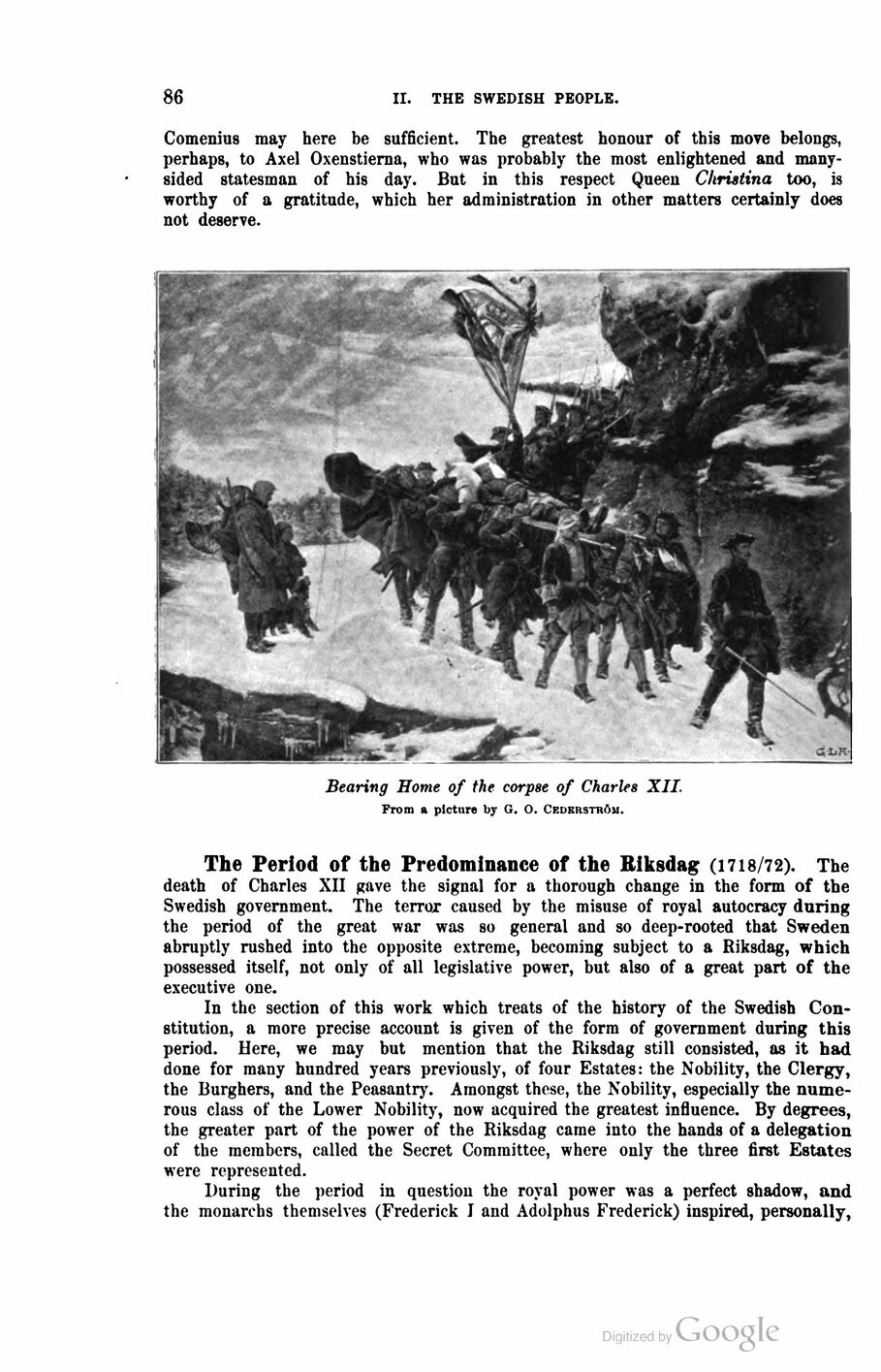
Full resolution (JPEG) - On this page / på denna sida - First part - II. The Swedish People - 1. Survey of its History. By E. Svensén, Author, Stockholm - Modern Times (from 1523 onwards)

<< prev. page << föreg. sida << >> nästa sida >> next page >>
Below is the raw OCR text
from the above scanned image.
Do you see an error? Proofread the page now!
Här nedan syns maskintolkade texten från faksimilbilden ovan.
Ser du något fel? Korrekturläs sidan nu!
This page has never been proofread. / Denna sida har aldrig korrekturlästs.
86 ii. th B swedish people.
Comenius may here be sufficient. The greatest honour of this move belongs,
perhaps, to Axel Oxenstjerna, who was probably the most enlightened and
many-sided statesman of his day. But in this respect Queen Christina too, is
worthy of a gratitude, which her administration in other matters certainly does
not deserve.
Bearing Home of the corpse of Charles XII.
From ft picture by G. o. Cedkrstböm.
The Period of the Predominance of the Riksdag (1718/72). The
death of Charles XII gave the signal for a thorough change in the form of the
Swedish government. The terror caused by the misuse of royal autocracy daring
the period of the great war was so general and so deep-rooted that Sweden
abruptly rushed into the opposite extreme, becoming subject to a Riksdag, which
possessed itself, not only of all legislative power, but also of a great part of the
executive one.
In the section of this work which treats of the history of the Swedish
Constitution, a more precise account is given of the form of government during this
period. Here, we may but mention that the Riksdag still consisted, as it had
done for many hundred years previously, of four Estates: the Nobility, the Clergy,
the Burghers, and the Peasantry. Amongst these, the Nobility, especially the
numerous class of the Lower Nobility, now acquired the greatest influence. By degrees,
the greater part of the power of the Riksdag came into the hands of a delegation
of the members, called the Secret Committee, where only the three first Estates
were represented.
During the period in question the royal power was a perfect shadow, and
the monarehs themselves (Frederick I and Adolphus Frederick) inspired, personally,
<< prev. page << föreg. sida << >> nästa sida >> next page >>